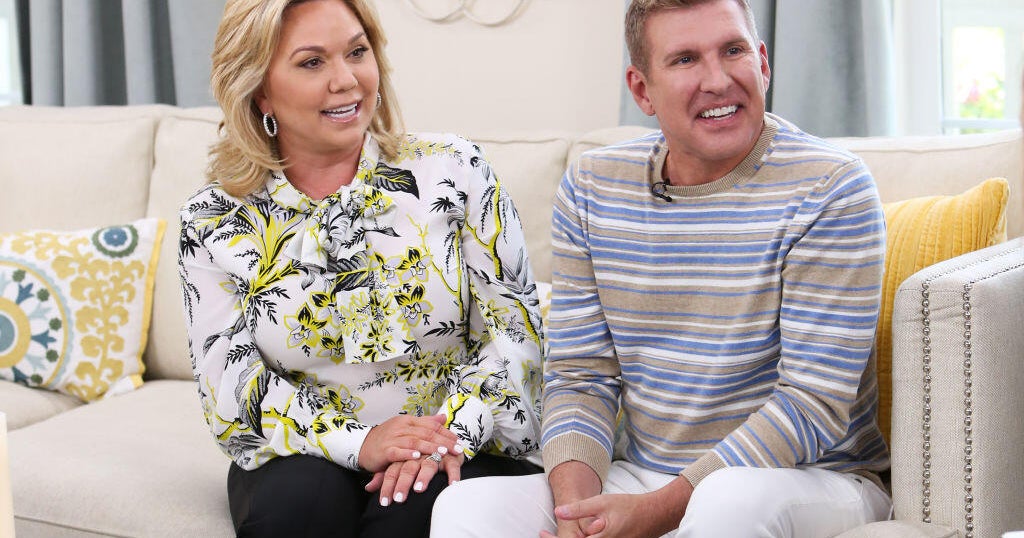Reality television stars Todd Chrisley and Julie Chrisley are poised to be pardoned by former President Donald Trump, allowing them to be released from prison following their conviction for bank and tax fraud. The couple, known for their show “Chrisley Knows Best,” had been serving sentences since 2022—Todd for 12 years at a federal prison in Florida and Julie for 7 years in Kentucky. A law firm representing the Chrisleys announced the impending pardon as part of Trump’s commitment to address what they described as misconduct in their legal proceedings.
| Article Subheadings |
|---|
| 1) Who are Todd and Julie Chrisley? |
| 2) What were the Chrisleys convicted of? |
| 3) Why did Trump pardon the Chrisleys? |
| 4) Reactions to the pardon |
| 5) Implications of the pardon |
Who are Todd and Julie Chrisley?
The couple gained fame through their reality television series “Chrisley Knows Best,” which premiered on the USA Network in 2014. It showcased their luxurious lifestyle, replete with real estate ventures and family dynamics, making them household names. Todd Chrisley, 57, is primarily known for his success in real estate, while Julie Chrisley, 52, contributed to their brand through her involvement in the family’s various enterprises. The show was characterized as “humorously voyeuristic,” providing a glimpse into their everyday lives and challenges. After a successful ten-season run, the series concluded in March 2023 when the couple’s legal troubles culminated in their sentencing.
What were the Chrisleys convicted of?
In 2019, the Chrisleys were indicted on multiple charges, including conspiracy to defraud community banks out of over $30 million. In June 2022, a federal jury found them guilty on all counts, which included tax-related crimes. The prosecution detailed how the couple submitted fraudulent bank statements to secure loans they used for extravagant purchases, such as luxury vehicles and properties. Furthermore, they deliberately concealed income from their reality show to evade payment on delinquent taxes totaling nearly $500,000, failing to file tax returns from 2013 to 2016. The U.S. Attorney’s Office emphasized that the couple’s actions reflected a blatant disregard for the law, stating,
“These convictions should send a clear message regardless of your fame, everyone will be held accountable for paying their fair share of taxes.”
Why did Trump pardon the Chrisleys?
The decision to pardon the Chrisleys stemmed from a conversation between Trump and their children, where he expressed concern over what he described as “pretty harsh treatment.” Although he admitted to having no personal connection with the couple, he seemed influenced by their narrative of unfair legal treatment. The Chrisleys’ law firm stated they sought a pardon by claiming serious misconduct, including an illegal raid and reliance on false evidence during their trial. Their daughter, Savannah Chrisley, bolstered their cause by advocating for her parents at the 2024 Republican National Convention, where she praised Trump for opposing political prosecutions. Their attorney, Alex Little, articulated that their conviction was significantly affected by their political beliefs, framing the pardon as a restoration of justice for the couple.
Reactions to the pardon
The news of the impending pardon has been met with mixed reactions. Supporters of the Chrisleys see this as a long overdue correction to what they believe was politically motivated injustice. However, critics argue that the pardon undermines the legal system and sets a dangerous precedent by suggesting that wealth and fame can shield individuals from the consequences of their illegal actions. Legal experts have noted that the ruling could embolden other public figures embroiled in similar legal battles to seek similar interventions. Furthermore, some lawmakers expressed disappointment, fearing it could lead to public disillusionment with the justice system.
Implications of the pardon
The ramifications of this pardon extend beyond Todd and Julie Chrisley, potentially influencing public perception regarding the justice system’s treatment of affluent individuals. By granting a pardon to well-known personalities, there is concern that it may signal to others that legal accountability can be evaded through political connections. This case has reignited discussions surrounding legal reforms, particularly in terms of how political affiliations could influence judicial outcomes. Observers are particularly vigilant regarding how similar cases might unfold in the future, especially as the political landscape evolves closer to elections.
| No. | Key Points |
|---|---|
| 1 | Todd and Julie Chrisley have been sentenced to prison for bank and tax fraud. |
| 2 | They gained fame through the reality show “Chrisley Knows Best.” |
| 3 | The couple was indicted in 2019 on multiple charges related to fraud. |
| 4 | Former President Trump announced plans to pardon the couple. |
| 5 | The pardon has sparked mixed reactions and raised concerns about a precedent. |
Summary
The expected pardon of Todd and Julie Chrisley by former President Trump has stirred significant discussion about the intersection of celebrity culture and legal accountability. While the Chrisleys maintain that their prosecution was unfair, critics see the pardon as a troubling indication of how power and wealth can influence the justice system. As this case unfolds, it raises questions about the broader implications for future legal proceedings, particularly those involving high-profile individuals.
Frequently Asked Questions
Question: What charges were the Chrisleys found guilty of?
They were convicted of bank and tax fraud, including conspiracy to defraud community banks out of over $30 million and avoiding payment on delinquent taxes.
Question: Why did Trump issue a pardon for the Chrisleys?
Trump claimed they faced harsh treatment and undeserved legal consequences, influenced by their daughter’s advocacy and allegations of misconduct in their trial.
Question: What could the implications of the pardon be?
The pardon may lead to public perception that political connections can override legal accountability, possibly prompting discussions on judicial reform moving forward.
